How is writing a novel different from writing a screen play? Why is Nollywood still struggling with writing a decent scripts? After almost 30 years of dominating the African film industry, what does the future look like for Nollywood?
Efe Mike-Ifeta, a Toronto-based Nigerian filmmaker, is on hand to respond to these questions while dishing out on his new project, Daddy’s Boy.
Mike-Ifeta is one of the bright young Nigerian minds aspiring to redefine filmmaking in Nigeria. He is currently wrapping things up for the February premier of Daddy’s Boy, a feature length film he wrote and directed.
Tell us a bit about yourself—where you’re based, where you attended film school, and so on. Is Daddy’s Boy your first film project?
My name is Efetobore Mike-Ifeta and I am Nigerian. I am based in Milton, Ontario where I am a storyteller and currently the producer of an online kitchen show called Rosy’s Kitchen. I have a theatre arts degree from Delta State University (Nigeria), a graduate certificate in Documentary Production from Algonquin College and a Master’s degree in Human Computer Interaction from Carleton University, both in Ottawa, Canada. Daddy’s Boy is my first film project and it is something I have wanted to do for a long time but just did not have the right material until now.
Do you consider yourself a Nollywood filmmaker? Why or why not?
I wouldn’t say I am and quite frankly I have not thought of myself in those terms or in any such ‘filmmaker’ term until recently when I have been asked similar questions by the virtue of this project. Firstly, I think ‘filmmaker’ tends to limit my medium of expression to only films or videos and I do a lot more. With regards to considering myself a Nollywood filmmaker, it is a very tough question to answer, because I do not necessarily subscribe to the term Nollywood. I know it is an informal name but I think there is a sense of UN-originality to it and although most people might not consider it a significant issue to debate, I think at the very least, it is something worth pondering over. I am a Nigerian and one of the mediums I tell stories through is film. If I had to be labeled then I think ‘Nigerian filmmaker’ will do just fine.
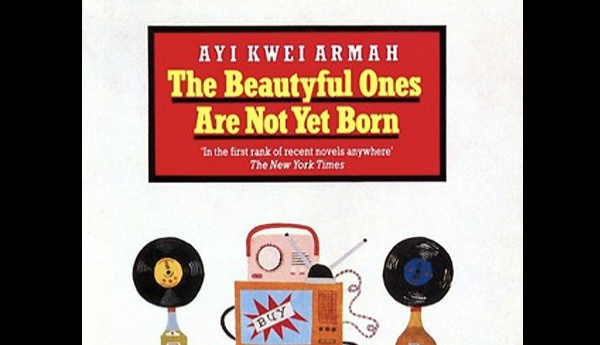
If someone said to you, “pick any African novel to adapt to screen, and I’ll give you the money for it,” what would be your choice and why?
The one African novel I will jump at without the slightest hesitation would be The Beautyful Ones Are Not Yet Born by Ayi Kwei Armah. It is one of the very few books I have read multiple times and that still I long read again. I first came by it in my father’s library as a kid. Now that I am older I know I had no business reading it then—with all the profanity in it. I did not quite understand what Kwei’s intentions were, all I knew at the time was that it was the most untamed diction I had ever seen used in a literary work. I thought to myself, ‘how brazen could a writer be?’
Armah tells the story of post independence Ghana under Nkrumah’s rule and centers around the tale of ‘the man,’ the central character, who struggles to be forthright despite the corruption that plagues his country. Ayi Kwei Armah also explores the idea of existentialism and the hopelessness of human endeavor but then he slowly builds up a parallel platform that shows the possibility of redemption and a new beginning. Presenting these struggles (through film) in the raw, no holds barred form in which Ayi Kwei Armah has put it will shine the light and draw attention once again to the things that plague us as a continent and hopefully begin one more conversation on how to rid ourselves of these demons.
Why did you write Daddy’s Boy? How did the idea for the story come about? In picking this particular story, did you consider its marketability, as in its chance for commercial success?
I have always been fascinated with the family and all of its many dynamics. It rises as a unit in triumphant times but what happens when it is rocked to its foundations by duplicity from within? I wouldn’t say it was a conscious decision to create the situations that occur in the story but the premise of having an unspeakable event happen to a family, something almost like a taboo seemed like a perfect recipe to test the seeming outward immutability of a family’s loyalty and love towards each other.
I completed the story for Daddy’s Boy some 7 months before I came round to actually typing it up. I played with a dozen different scenarios on how I wanted the story to progress and whether or not I should resolve certain conflicts that were raised in the story or just leave it be for the audience to figure out. I knew somewhere in there was a good story, but I also knew that it is never enough to only have a good story. Honestly, commercial success was the last thing on my mind when the story was being developed. Just as it is said that a good song will sell itself, I believe a good story will as well and that’s what I have tried to do.
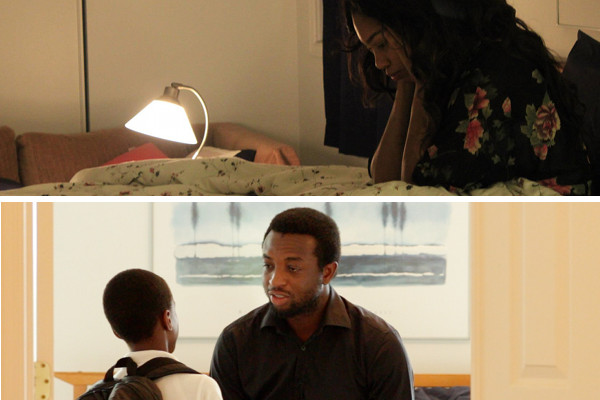
I’m guessing you read novels. How, would you say, the mechanics of constructing a script is different from that of writing a short story or a novel?
Firstly, I believe novels to be the ultimate test of a writer’s ability. When it is done right, mere letters on a page could literally be transformed into a visual experience, and it is the authors’ job to help the reader witness this experience and also become part of it. Novels are also painstaking and because the author has to rely solely on his audience’s imaginative ability and nothing more, he has to be detailed and descriptive, very descriptive. A novelist does not have the luxury of camera angles, wide, medium and tight shots and all the other things that are available in a screenplay. He has to create all of these visual elements with his words and in that, he has to be a skilled wordsmith. He is the primary creative artist, the director, the costumier, and the set designer.
Writing drama or a screenplay isn’t that demanding, at least not for the screenwriter. Screenwriters are hardly the primary creative artists on a project and most times do not even get to be on set when a project is being shot. That type of scenario could see a script evolve a lot and when it finally gets made, it becomes a completely different story entirely. A screenplay contains lots of dialogue, basic description of the action, of the characters and their emotions, camera angles, location, time of day etc. but nothing is really expected to be that detailed and the reason for this is that a screenplay is more of a collaborative artistic endeavor than it is one man’s vision except of course you are a Woody Allen or a Quentin Tarantino or a Tyler Perry.
However, both processes are driven by the same underlying story structure. The same story principles apply to both and do not change. In fact, we have seen and continue to see instances where a novel is successfully adapted to screen and a screenplay becomes the first draft for a successful novel. So, there really isn’t a watertight compartment. What I do is to walk that fine line. My screenplay reads like a novel. I write so that if for some reason it doesn’t make it to film, the reader at the very least gets a limited experience of what it would have looked and sounded like. So, I am very descriptive.
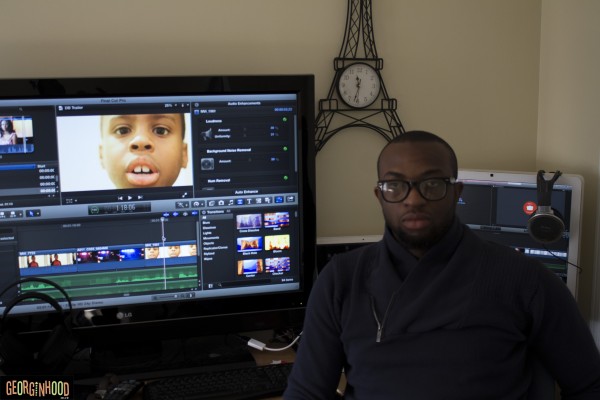
Apart from being the writer, what other hats do you wear in the production of Daddy’s Boy?
Executive producer, producer, director, actor, video editor and most of the time when I am not on screen, I am holding the camera. I have been heavily influenced by the greats: Stanley Kubrick, Spike Lee, John Singleton, Steven Soderbergh and by Woody Allen in particular. I believe that in order to preserve the integrity of your story; one has to become the primary creative artist on a project. A writer/director if you will. After Woody’s first film project was completely abused by the production studio in charge of making a film out of his screenplay, he vowed never to allow that happen again and has directed all his movies ever since, over fifty years now. I know a time will come where I might not be able to wear these many hats and function in so many roles but I will always seek to write and direct my material at the very least.
I’m struck by how riveting and cleanly-written the Daddy’s Boy script is. When I started reading, I couldn’t get my eyes of the computer screen till I finished. What accounts for the quality of the script?
Thank you very much. I am glad you found it compelling. It is a simple story really; what has happened is that it has been told well judging from your feedback and a good number of other people who have had the opportunity of reading it. A good story came at the right time to a good storyteller. Like I said earlier, I had gone back and forth with the story for some 7 months but the script itself was written in one night. That process thoroughly refined the story and took out all of the fluff and gave it a solid structure. When I eventually got to writing, I knew each character as though they lived next door from me. Each one knew what they were supposed to say in response to the other, on every single page, and by morning I had a script that has hardly changed over the six months we filmed except for minor typos and spelling errors that had to be corrected. Let me also say that skill and ability comes from the Lord. He is the giver of everything. I simply made myself available and was a conduit for a greater force to operate through and the result is Daddy’s Boy.
Can you reflect a bit on the sickness of bad writing that plagues Nollywood? Why do you think Nollywood still hasn’t been able to figure out how to write? What are they not doing right?
I have always said this and know it to be true; a good story does not make for a good film if it isn’t properly executed. The story could look good on paper but if the time has not been taken to adapt that story specifically for the screen, then a filmmaker is sure to face some unique set of challenges. To begin, there is a dearth of good writers in general in the film industry and this might be because it is still very young compared to others forms of writing like prose, poetry and drama (stage plays) that began very early on after Nigeria’s independence. The industry is in dire need of good screenwriters. The very few that exists and are actually able to write and execute great stories on screen are drowned in all the mediocrity of the many others who just keep putting out home videos. But it isn’t all-bleak, there are people who have been consistent for a long time and are passionate about the craft before monetary gains. Ironically, in putting the craft first, they have also reaped big. This goes to show that this model works and can work in Nigeria. These people include Jeta Amata, Tade Ogidan, Ego Boyo, Kunle Afolayan and few others. These people have honed their craft and it comes through in their projects with regards to content development and its execution.
Daddy’s Boy is a story about family. Family is this place where we enjoy the warm, fuzzy feeling of love and security. And you do a amazing job of capturing that at the beginning of the story. But it looks like the film is also saying that in addition to those things, family is also a place where secrets fester and lead to strange forms of violence. Pretty heavy stuff. What drew you to these kinds of concerns?
Relationships are very interesting I find. Whether it is between siblings or between lovers. Whether it is within a family or in a corporate environment, it is still just as interesting. As humans, we have been created in such a way that we are capable of waging battle against ourselves, in our heads, and most times such encounters are even more violent than being in a fight with external forces. Being in a relationship (of any kind), not necessarily a family, only increases the chances of two things to occur; firstly, and like you have described it; the availability of a certain sense of warmth, love and security and on the other end of that same board is the provision of cold, hate and insecurity. Like a seesaw we go down each side every now and again, but it is only temporal. For some, they have been able to work at keeping the weight heavy on love and that ‘fuzzy’ feeling and for others the reverse is the case. Daddy’s Boy is pure fiction but these realities occur everyday, it may not be as extreme as it is presented in the story but our walls shields a lot from the neighbors.
What did you find most challenging/fun about the production experience?
Making a film is a challenging process in and of itself. Daddy’s Boy was made almost on a zero dollar budget so that was challenging, very challenging. It forces you to be resourceful and analytical in how you approach filmmaking. I often say that Filmmaking (The process of filming) is problem solving. What do you do when you wish to shoot a sunny outdoor scene and the sun suddenly goes behind the clouds and won’t come out for 15-20 minutes? You quickly get creative so that you don’t waste the time of your talents and most importantly you don’t have rented equipment lying around doing nothing. You think quickly on your feet. Being able to take this story from mere thought to being words on paper and then having a set of talented actors bring your initial thought process to life by speaking them is the most fun a writer could wish for.
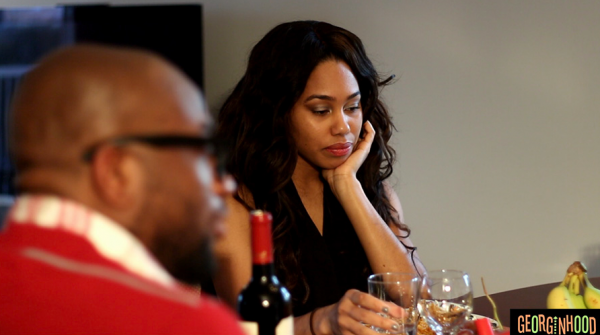
You play the doting husband who finds out something dark and unsettling about his father. Cecilia Haslett—who is endlessly gorgeous by the way—plays Angela, his sweet but troubled wife. From the little I’ve seen of the film, you both seem to have great chemistry. What was it like working with Haslett and all the other actors?
Well, since she is not here, I am going to have to say thank you on her behalf just so she knows (when she reads this) that I took the time to acknowledge the compliment. I think her being ‘endlessly gorgeous’ as you have described did not hurt the process. I had worked with her on a commercial one year before so I knew a bit of her ability. When Daddy’s Boy was ready and her name came up for the role of Angela in one of our production meetings, we sent her a script immediately. When we finally heard her read, she was perfect, it was as though the character had been written for her. We fed off each other’s energy on set and the rest just happened naturally.
As the director, are you satisfied with the performance of all your actors? How did you get them to give their best?
I had worked with Omodudu Onidada, the lady that played Suzanne and her talent is just undeniable. It was my first time working with O.C. Okoye who played Philip, and he brought something special to the production as well. Chairo Ogbebor was also very generous and patient. I must say that this is the most talented bunch of people I have been on set with and the talent did not stop with the actors, it spilled unto the crew. It’s just a brilliant bunch and we did a brilliant job. With regards to making them give their best, I think the script did most of that work for me. Right from the onset when the scripts were sent out, it was always with the little note; ‘Please read this and see if this is something you are interested in’. Everyone who worked on the project was sold on it from the get go and so a little directing made them soar.
Casting a child actor can be tricky. Nollywood is, as you know, is notorious for really bad child acting. What was it like working with Chairo Ogbebor who plays little Rukky?
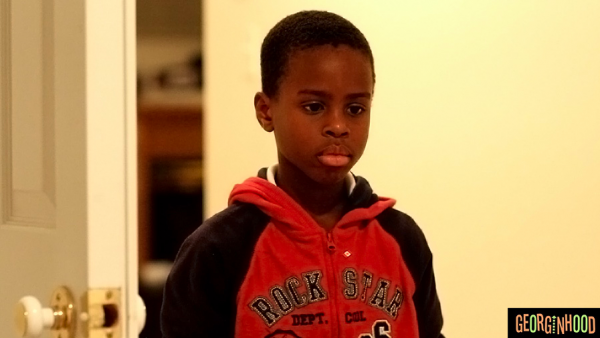
Chairo was a delight to work with. His scenes were shot in Ottawa and he lives in Toronto. So, his parents actually had to drive him over for the days we were going to be filming. He was patient. Any filmmaker/actor would agree that being on set is far less glamorous than what is presented as the final product on film. There were long breaks in between sets that will make any kid his age become distracted and bored but he held up quite well. He is a smart kid and I think this will act as a springboard to other projects should he decide to keep doing this.
Could you reflect a bit on Nollywood at the moment? What’s your sense of the Nigerian film industry? Is there hope that things will improve at the level of writing, technical quality, and distribution?
I think we are going through a phase, whether it is necessary for growth I do not know but I think it is a phase and it’ll pass. There is an interesting phenomenon in psychology known as proactive interference. When strong habits impede one’s ability to acquire a desired new habit or association, we experience a common phenomenon known as proactive interference. An example of wrong associations appear in common spelling errors such as “wierd” for “weird” and “neice” for “niece.” Some people can’t get these spellings correct, not because they do not know how to spell it right; it just has become a habit. I think this is what has happened to the Nigerian Film Industry.
As a country we know better, as film watchers we want better, as filmmakers we know we can do better, but we learned this ‘thing’ the wrong way to begin with and since we have somehow turned it into the third largest film industry in the world, I don’t think there will be any argument one will make that will make a significant change to the industry. We have somehow managed to believe and convince ourselves that a high production volume equates high-end quality. If we are producing so many films and the industry has been a feature on CNN then there must be something we are doing right, or so we think. But, we know all too well that twice as much isn’t twice as good. We need to go back to the start and learn how to run the movie business/industry but according to psychologists, it is difficult to ‘unlearn’ an incorrect fact. Again, I want to stress the fact that we know better as a country. We watch and for the most part are inundated with high quality materials that are produced in North America and Europe. Why is it then that we can’t replicate the same level of quality in our writing and production? It is not because we cannot, it is because we have chosen not to and this is because change is hard.
Things can only improve though. Just when it seemed our music industry could never compete on a global scale, we switched things around and the result is this massive partnership between artists from America and Africa. It might take a little while because music production is slightly different from filmmaking but we will get there. Afrinolly is a good start. We have seen what can happen when such platforms are created and I believe people who enter for the competition do it more for the craft than for the money.
What’s the timeline for the release of Daddy’s Boy?
Daddy’s Boy makes its world premier on the 14th of February on YYTV where it’ll run for three days.
As a way of concluding, can you share with us what you love most about the Daddy’s Boy project?
I tend to work in view of my next project. What Daddy’s Boy has done for me is set a standard that cannot be ignored in future projects. We (production team) have done things with this project that still gets me pinching myself sometimes and I will often say to myself; ‘If this is possible, the next will be incredible’. I am just really excited about the whole process; birthing an idea, watching it take its first baby steps and then being a witness as it runs and takes flight. It is very fulfilling.
Give us two reasons to go check it out when it’s released.
It is good storytelling by an amazing cast. That’s two I believe.
Watch the Trailer for Daddy’s Boy


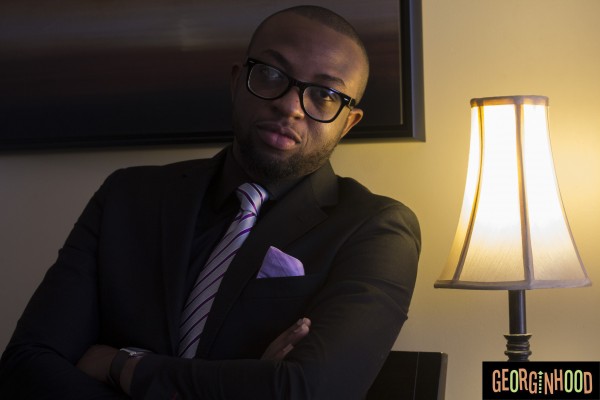
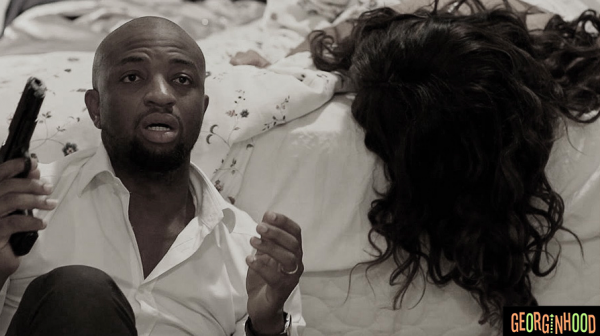
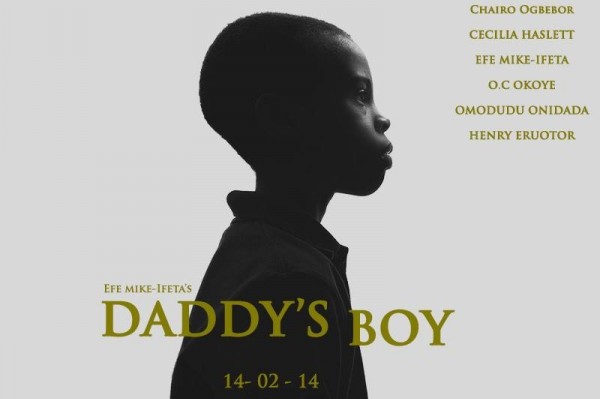
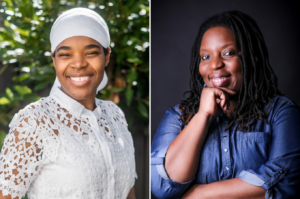
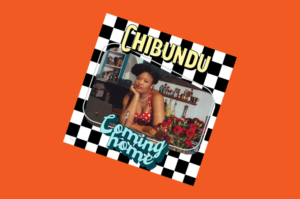

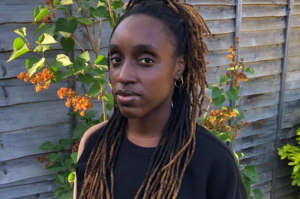



COMMENTS -
Reader Interactions